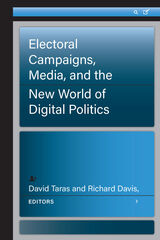
In 1830 philosopher Auguste Comte coined the term altruism to provide a general definition for the act of selflessly caring for others. But does this modern conception of sacrificing one's own interests for the well-being of others apply to the charitable behaviors encouraged by all world religions? In Altruism in World Religions prominent scholars from an array of religious perspectives probe the definition of altruism to determine whether it is a category that serves to advance the study of religion.
Exploring a range of philosophical and religious thought from Greco-Roman philia to Judaism, Christianity, and Islam, from Hinduism in India to Buddhism and the religions of China and Japan, the authors find that altruism becomes problematic when applied to religious studies because it is, in fact, a concept absent from religion. Chapters on Judaism, Christianity, and Islam reveal that followers of these religions cannot genuinely perform self-sacrificing acts because God has promised to reward every good deed. Moreover, the separation between the self and the other that self-sacrifice necessarily implies, runs counter to Buddhist thought, which makes no such distinction.
By challenging our assumptions about the act of self-sacrifice as it relates to religious teachings, the authors have shown altruism to be more of a secular than religious notion. At the same time, their findings highlight how charitable acts operate with the values and structures of the religions studied.

Today, political leaders and candidates for office must campaign in a multimedia world through traditional forums—newspapers, radio, and television—as well as new digital media, particularly social media. Electoral Campaigns, Media, and the New World of Digital Politics chronicles how Twitter, Facebook, Reddit, email, and memes are used successfully and unsuccessfully to influence elections. Each of these platforms have different affordances and reach various audiences in different ways. Campaigns often have to wage different campaigns on each of these mediums. In some instances, they are crucial in altering coverage in the mainstream media. In others, digital media remains underutilized and undeveloped. As has always been the case in politics, outcomes that depend on economic and social conditions often dictate people’s readiness for certain messages. However, the method and content of those messages has changed with great consequences for the health and future of democracy.
This book answers several questions: How do candidates/parties reach audiences that are preoccupied, inattentive, amorphous, and bombarded with so many other messages? How do they cope with the speed of media reporting in a continuous news cycle that demands instantaneous responses? How has media fragmentation altered the campaign styles and content of campaign communication, and general campaign discourse? Finally and most critically, what does this mean for how democracies function?

Richard Davis has expertly crafted a stirring narrative of the last years of Song, focusing on loyalist resistance to Mongol domination as more than just a political event. Davis convincingly argues that Song martyrs were dying for more than dynasty alone: martyrdom can be linked to other powerfully compelling symbols as well. Seen from the perspective of the conquered, the phenomenon of martyrdom reveals much about the cultural history of the Song.
Davis challenges the traditional view of Song martyrdom as a simple expression of political duty by examining the phenomenon instead from the perspective of material life and masculine identity. He also explores the tensions between the outer court of militant radicals and an inner court run by female regents—tensions that reflect the broader split between factions of Song government as well as societal conflict. Davis reveals the true magnitude of the loyalist phenomenon in this beautifully written, fascinating study of Song political loyalty and cultural values.
READERS
Browse our collection.
PUBLISHERS
See BiblioVault's publisher services.
STUDENT SERVICES
Files for college accessibility offices.
UChicago Accessibility Resources
home | accessibility | search | about | contact us
BiblioVault ® 2001 - 2024
The University of Chicago Press









